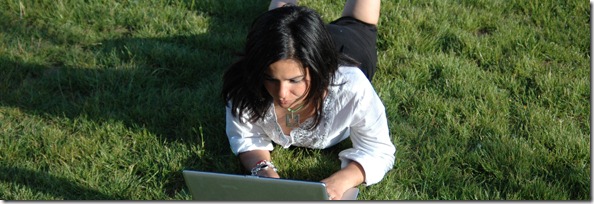
This comes as a request on twitter from @Furiey. They asked me to write a post about my particular style of leadership and thus today’s post is born!
There are many different ways to lead I’ll discuss some of the more common ones and then talk about my own style. The most common styles of leadership you’ll find in MMO’s are as follows:
- Democratic leadership
- Bureaucratic leadership
- Charismatic leadership
- People-Oriented leadership
- Laissez-faire leadership
Democratic Leadership
The democratic leadership style is also called the participative style as it encourages Guildies to be a part of the decision making. The democratic Leader keeps his or her Guildies informed about everything that affects their Guild and shares decision making and problem solving responsibilities. This style requires the leader to be a coach who has the final say, but gathers information from Guild members before making a decision. Democratic leadership can produce high quality and high quantity work for long periods of time. Many Guildies and Raiders like the trust they receive and respond with cooperation, team spirit, and high morale.
Like the other styles, the democratic style is not always appropriate. It is most successful when used with highly skilled or experienced Raiders or when implementing operational changes or resolving individual or group problems.
This is an everyone contributes to the process thing with the Raid Leader or Guild Leader being the final say. This is VERY VERY good for morale and helps make people feel a stronger emotional investment to the guild as a whole. It does have a downside in which sometimes Alpha class personalities can clash when two conflicting ideas are presented. A strong and decisive Leader can head this off at the pass however. This is also very time consuming process sometimes to get things accomplished.
Bureaucratic leadership
Bureaucratic leadership is where the Leader manages “by the book¨. Everything must be done according to procedure or policy. If it isn’t covered by the book, the Leader refers to the next level above him or her, or converses with officers as to make new policy to handle the situation.
Basically you set rules and policies to handle as much as you can and then follow those guidelines to the letter, be it loot policy, raiding policy or even guild structure.
Charismatic leadership
A Charismatic leader is one who provides an environment full of energy and positive (well OK, sometimes Negative) reinforcement. If you are naturally charismatic, you are very fortunate! This is a trait that is not so easily learned. Charismatic leaders inspire others and encourage them to be their best. Guildies and group members want to impress a charismatic leader, so they work hard and strive to succeed. Charismatic leaders are great for projects that require energy and talent.
This type of leadership is a double edged sword. You’re often perceived as approachable and a friend to the guild. It’s like Cheers and everyone knows your name. People are excited to group with you and this type of leadership is great for morale. It does however require a lot from the Leader and your mood will greatly affect the mood of those around you.
People-Oriented leadership
The leader is totally focused on organizing, supporting and developing the people in the leader’s team in order to accomplish a specific goal. A participative style, it tends to lead to good teamwork and creative collaboration. However, taken to extremes, it can lead to failure to achieve the team’s goals. In practice, most leaders use both task-oriented and people-oriented styles of leadership. This lends itself well to an autocratic approach and the leader will actively define the work and the roles required, put structures in place, plan, organize and monitor.
This can be highly effective form of leadership, but has an increased chance to cause burn out and atrophy among Guildies and Raiders.
Laissez-faire leadership
The laissez-faire leadership style is also known as the “hands-off¨ style. It is one in which the Leader provides little or no direction and gives Guildies and Raiders as much freedom as possible. All authority or power is given to the masses and they must determine goals, make decisions, and resolve problems on their own.
While this may sound silly you’d be surprised at the number of people that do take this approach, trusting in the structure of the guild and the maturity and camaraderie of the Guildies and Raiders to keep things flowing.
Choosing the Right Style
A good leader will find him or herself switching instinctively between styles according to the people and work they are dealing with. This is often referred to as “situational leadership”.
For example, the manager of a small factory trains new machine operatives using a bureaucratic style to ensure operatives know the procedures that achieve the right standards of product quality and workplace safety. The same manager may adopt a more participative style of leadership when working on production line improvement with his or her team of supervisors.
How Lodur Leads
I am a Situational Leader, but I tend to hover between Democratic, Bureaucratic and Charismatic leadership styles. My default mode is Charismatic though. I’ve been told I’m very Charismatic by the people that meet me, whether this is true or not I’ll just go with it 😉 . I tend to try to inject a lot of energy into my team when I’m leading. I joke I jibe people and I try to keep spirits high. When it comes time to make a decision like if people want to keep going on a raid boss, or if it comes time to re evaluate tactics I slip into Democratic mode. When there is a problem or potential problem I want everyone in my raid contributing. Even the zaniest of ideas sometimes is the one you need to work. Between being very energetic and asking for everyone to participate, morale is kept high and my raiders always feel a strong involvement and attachment to the raid and to the guild as a whole.
When it comes time for something with policy and procedure I become very Bureaucratic. I follow the policy to the letter, it’s there for a reason. This includes reviewing applications for raider positions and most recently denying someone a raider rank. I deal with it with professionalism and courtesy, and I follow the guild guidelines to the letter. Let me give you an example of each.
A few weeks ago my guild split into three 10 man groups. The idea was to do ToC 10, Ony 10 and then ToGC 10 and see how far we could get our groups in ToGC. When I started the raid invites I had a few new people and the first thing they heard was me “yelling” at another one of the officers on vent. Zabos and I have a very long history of friendship and we can often be heard over vent with me telling Zabos to die in a fire and Zabos waving some epic or mount in my face to taunt me. We goof around and the guild loves picking on Zabos. The new guy was a bit confused but then everyone joined in throwing some jibes around. I then chimed in over vent
“OK guys here’s the plan, ToC and Ony like normal then we’re coming back here to do some heroic ToGC 10 good stuff. My goal is to make it farther then Woe’s team. This is where you come in. I need you guys to give it your all when we come back here. Get your silly wipes and deaths out of the way early and lets show our Guild Leader what team Lodur is made of!”
This was met by the sounds of eager raiders getting ready to sink their teeth into content they had not tried before and led to a two shot of heroic Beasts before the raid was called on account of time. The first wipe I asked on vent if anyone had any ideas how we could make it better. A few people chimed in and we implemented some of the ideas and it lead to victory! They were so excited and everyone had a good time, and I was quite proud of them.
After the raid that night I had to send a denial letter to one of my Shaman who had applied to raider. I switched into my Bureaucratic mode and cited the reasons why they were being denied the rank, as well as citing guild policy. They understood and there was no hard feelings.
So that’s how I lead. I slip between the three styles as the situation dictates, but I tend to default to Charismatic style of leadership. People tend to like me and so I don’t have to brow beat them or yell too often to get them to do something. 95% of the time I just have to ask nicely and it gets done. People feel comfortable when I’m in charge and I’m told I do a good job and everyone has a good time so apparently I’m doing something right.
There are many ways to lead and in the end you have to find the one that fits your goals as a group as well as you as a person. and leader.
So how about you? How do you lead? What style best suits your personality and raid?
Tune in next time where I’ll talk about the tools I’ve come across that I’ve found useful when leading a raid.
Until next time, Happy Healing!

image courtesy of faqs.org






